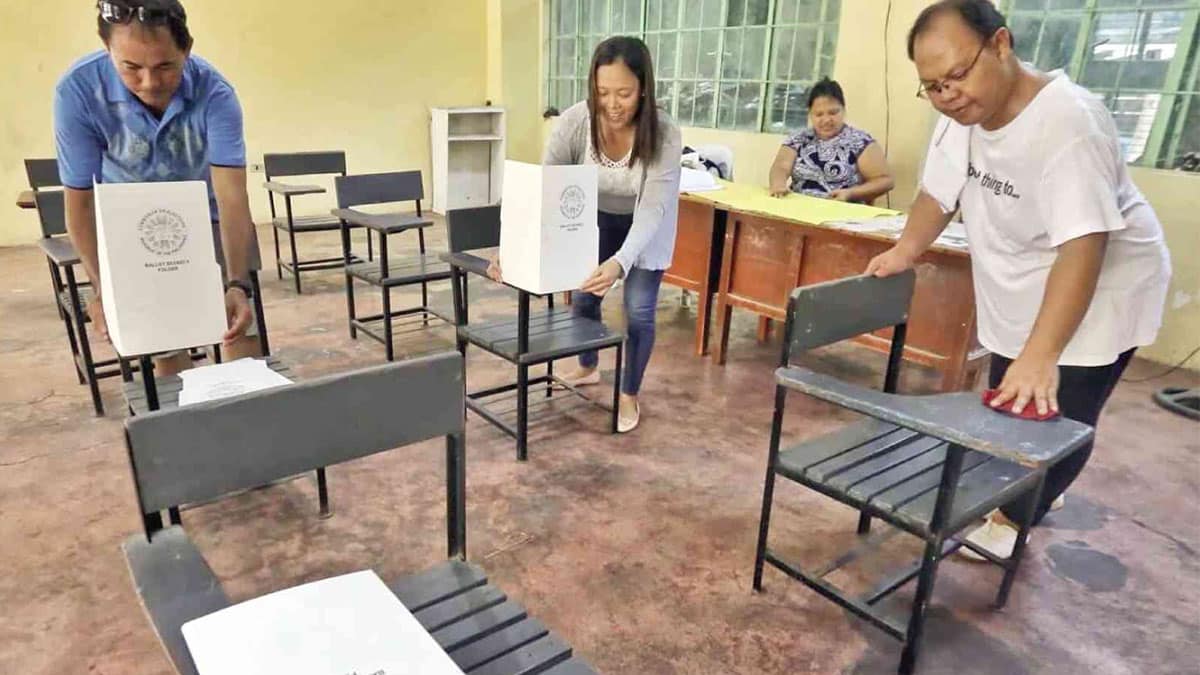Solons warn: Pro-Duterte fake social media accounts undermine May polls

Teachers prepare the election paraphernalia. File Photo
MANILA, Philippines — Fake pro-Duterte social media accounts, which reportedly affect this year’s elections, are undermining Philippine democracy and a threat to voters, according to lawmakers.
In a statement issued Sunday, Senior Deputy Speaker Aurelio “Dong” Gonzales Jr. likewise called for a nationwide effort to protect voters from “digital deception.”
“We must defend the Filipino people not just from guns and goons, but from ghost accounts flooding their social media feeds with propaganda and deception,” Gonzales said.
“When bots, trolls, and fake profiles can reach millions of Filipinos and alter the truth with just a few clicks, democracy itself is under attack,” he added.
Similarly, Deputy Speaker David “Jay-Jay” Suarez called the alleged use of trolls a way of “weaponization of disinformation.”
“This is digital warfare, plain and simple. And the battlefield is not just the internet—it’s the hearts and minds of millions of Filipinos,” Suarez said in a separate statement.
“This is a wake-up call. The weaponization of disinformation to mislead, misinform, and manipulate voters is one of the gravest threats to our democracy today,” he added.
Both lawmakers were reacting to a Reuters report that about one-third of social media accounts discussing former President Rodrigo Duterte’s recent International Criminal Court (ICC) case — praising him and lambasting the court — were fake.
The report also revealed that the same tactics were being used “in a deliberate, organized” campaign to shape public perception around the May elections,” as revealed by Israel-based tech firm Cyabra.
In line with this, Gonzales urged the Department of Education, Commission on Higher Education, and the Department of Information and Communications Technology “to launch a joint national digital literacy program to help students and the public identify and resist coordinated disinformation campaigns.”
He also asked political parties not to use “click armies and paid influencers” in campaigning.
For his part, Suarez urged social media platforms such as Meta, X (formerly Twitter), and YouTube to take more proactive actions in combating the proliferation of these fake accounts.
READ: Pro-Duterte OFWs held in Qatar over illegal rally
“They have the resources and the algorithms to detect inauthentic behavior. They can’t just turn a blind eye while democracy is under attack,” he said.
“The Filipino voter is smart, but we owe it to them to give them the tools to fight back against deception. Let’s raise media literacy, promote digital hygiene, and ensure our elections reflect the people’s will—not the will of shadow operators,” Suarez said.


















